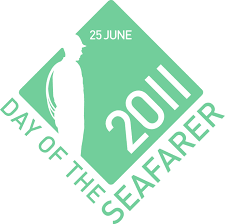The International Maritime Bureau reported in October 2011 that the number of attacks by Somali pirates reached an all-time high during the first nine months of 2011. In total, 199 ships were attacked, compared to 126 in the same period in 2010. However, the number of successful attacks decreased, with 24 ships being taken, compared to 35 in 2010. It has been suggested that the decline in successful attacks is partly due to the intervention of international fleets.
Recent legislation
In December 2009 Belgium adopted two anti-piracy laws (for further details please see "New laws on prosecution of piracy").
Preventing attacks
The new legislation provides that commanders of Belgian warships - or of Belgian ships that bear an authorised identification mark to show that they are in the service of the state - may take any preventive, controlling or enforcing measure necessary to avert or stop an act of piracy.
Some Belgian shipowners recently called on the federal authorities to allow them to hire private security forces for their vessels. At present, Belgian legislation does not allow shipowners to protect their ships against pirates in this way, but as far as is known, such protection is allowed by other countries, including Norway, Denmark, the United Kingdom and Spain.
Prosecution of suspected pirates
The law also provides that the public prosecutor may prosecute persons suspected of piracy before the Brussels Criminal Court if their acts are carried out against Belgian ships or if they are captured by the Belgian military.
First prosecution
As a result of this legislation, Belgium has prosecuted its first pirate. He was captured by the Belgian frigate Louise-Marie in late November 2010, as his vessel prepared to attack the ship Petra. He was subsequently identified by three crew members of another vessel, the Pompei, as one of the participants in its seizure in April 2009.
The pirate was transferred to Belgium, where he was sentenced to 10 years' imprisonment by the Brussels Criminal Court in June 2011. In October 2011 the Brussels Court of Appeal confirmed the sentence in a decision rendered by default.
Comment
The laws introduced in December 2009 are a step in the right direction. However, some experts have questioned whether they provide sufficient protection for Belgian-flagged ships and their crews. It remains to be seen whether the federal authorities will allow private security forces onboard non-military ships in order to protect Belgian shipping against piracy.
For further information on this topic please contact Bénédicte Gréant at Kegels & Co by telephone (+32 3 257 2079), fax (+32 3 257 1474) or email (benedicte.greant@kegels-co.be).
OCEANUSLive.org


Information, Security, Safety; Shared